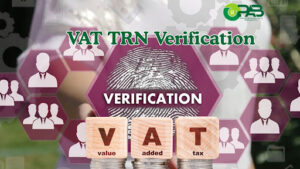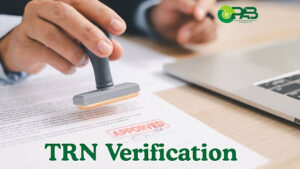Filing your corporate tax return is a big step for every business in the UAE, but the work does not end there. Once your return is submitted, there is a crucial period that follows—the post-corporate tax season.
This is when businesses double-check their filings, manage refunds or payments, prepare for potential audits, and plan smarter for the next year. Taking time to review your next steps now can save you from penalties later and help you build stronger financial control.
Read on to learn exactly what to do after filing corporate tax so you can stay compliant, improve accuracy, and keep your business financially healthy in 2025.
Why the Post-Corporate Tax Season Phase Matters
After your corporate tax return is submitted, the post-filing phase becomes just as important as the filing itself. This is when errors are spotted, improvements are made, and opportunities for better tax planning are discovered.
Taking action early helps you:
✅Avoid unnecessary penalties or audits
✅Keep your tax and accounting records aligned with FTA standards
✅Strengthen your company’s financial management for the next fiscal year
Step 1: Confirm Submission and Payment Status
Start by confirming that your Federal Tax Authority (FTA) submission was received and accepted. The EmaraTax platform is the official system for filing, payments, and refunds.
Follow these steps:
- Log in to your EmaraTax account
- Check the filing and payment confirmation status
- Download and save acknowledgment receipts for your records
- Ensure your payment matches the amount owed on your return
If your submission shows any pending or error status, address it immediately. Always save both digital and printed copies of your return and receipts for future audits.
Step 2: Reconcile Your Financial Records
Once your filing is confirmed, compare your financial statements with the data you submitted to the FTA. This ensures consistency between your records and tax filings.
Check your:
✅Profit and loss statement
✅Balance sheet and retained earnings
✅Expense breakdown and deduction claims
✅Entries for deferred tax, credits, or adjustments
Accounting software like Zoho Books, Odoo, or QuickBooks makes reconciliation easier and more accurate.

Step 3: Manage Refunds or Outstanding Balances
If your business has overpaid taxes, you can request a refund from the FTA through EmaraTax. If you owe additional payments, settle them promptly to avoid penalties.
To stay compliant:
✅File refund claims for any overpaid tax
✅Pay outstanding balances before the deadline
✅Keep transaction receipts and confirmation notices
✅Monitor the FTA portal for refund or payment updates
The FTA requires businesses to file and settle corporate tax within nine months from the end of their financial year. For example, if your financial year ended on 31 December 2024, you must file and pay by 30 September 2025.
📚 Also read: How to Calculate Corporate Tax in UAE: Step-by-Step Process
Step 4: Review Deductions, Adjustments, and Tax Treatment
After filing, review your deductions and exemptions. This helps ensure your claims follow current FTA rules and that you are optimizing your tax position.
Focus on these key areas:
✅Deductible expenses such as salaries, rent, and utilities
✅Non-deductible expenses like personal costs and penalties
✅Free Zone income and qualifying exemptions
- Qualifying Free Zone Persons are taxed at 0% on qualifying income and 9% on non-qualifying income, provided all FTA conditions are met
✅Interest deduction limitation rules introduced in April 2025
✅Transfer pricing adjustments for related-party transactions
Post-season reviews help you identify mistakes early and prepare a stronger tax strategy for your next filing.
Step 5: Prepare for Possible FTA Audits
The FTA may audit businesses randomly or when irregularities are detected. Keeping organized records ensures you are ready at all times.
Your audit checklist should include:
✅Retaining supporting documents for at least seven years after the end of the relevant tax period
✅Keeping invoices, ledgers, and contracts easily accessible
✅Reconciling bank statements regularly
✅Performing internal audits quarterly
These practices protect your business from penalties and make responding to FTA inquiries much easier.
Step 6: Plan Ahead for the Next Corporate Tax Cycle
Preparing for next year starts right after you finish filing for this one. Consistent planning helps you avoid rushed submissions and compliance issues later.
Here’s how to plan ahead:
✅Align your accounting year with FTA filing deadlines
✅Forecast income, expenses, and cash flow for the next tax cycle
✅Set quarterly check-ins to review your financial health
✅Schedule reminders for future filing and payment dates
📚 Also read: Tax Compliance UAE: Expert Guidance for Businesses
Step 7: Stay Updated on Corporate Tax Changes
Corporate tax regulations continue to evolve, and staying informed keeps you compliant. The Ministry of Finance (MoF) and Federal Tax Authority (FTA) regularly issue new guidelines and clarifications.
Recent 2025 updates include:
✅Interest Deduction Limitation Rules issued by the FTA in April 2025
✅Clarified tax treatment for unincorporated partnerships under the new law
✅Introduction of a Domestic Minimum Top-up Tax (DMTT) for large multinational companies, applicable for financial years starting on or after 1 January 2025, to ensure a 15% minimum effective rate under OECD Pillar Two
✅Updated FTA guides on taxable income, qualifying activities, and free zone taxation
Subscribing to FTA announcements or consulting with experts like OPAB helps ensure you never miss important updates.
📚 Also read: Dubai Debt Reduction and the 9% Corporate Tax Policy Updates

Step 8: Evaluate Your Post-Tax Business Performance
Understanding how taxes affect your company’s financial position is key to making better business decisions.
Evaluate:
✅Net profit after tax (NPAT) to measure true earnings
✅Pre-tax vs post-tax margins to track performance
✅Return on investment (ROI) and cash flow to assess sustainability
These insights help you make smarter decisions about reinvestment, savings, or expansion in the coming year.
Step 9: Upgrade Your Systems and Workflow
If your tax filing process was stressful or disorganized, it is time to make improvements. Streamlining your systems ensures accuracy and saves time next season.
Take these steps:
- Automate bookkeeping, invoicing, and payroll
- Use integrated tools for real-time data tracking
- Standardize documentation and naming conventions
- Train your team to maintain consistent recordkeeping habits
A strong accounting foundation helps your business handle compliance smoothly and efficiently.
Step 10: Consult a Corporate Tax Expert
Even the most organized businesses benefit from expert guidance. UAE tax laws are still relatively new, and working with professionals ensures accuracy and peace of mind.
You may need help if:
✅You operate in Free Zones or across multiple emirates
✅You manage cross-border transactions or subsidiaries
✅You received an FTA notice or anticipate an audit
✅You want to improve your accounting system or compliance process
📚 Also read: Is Corporate Tax Registration Mandatory in the UAE?
Common Mistakes to Avoid After Corporate Tax Season
Even businesses that filed correctly can make mistakes after submission. Avoiding these helps you maintain compliance and financial control.
Common mistakes include:
✅Thinking the process ends after filing
✅Ignoring emails or notices from the FTA
✅Missing payment or refund follow-ups
✅Failing to back up financial records
✅Starting next year’s planning too late
Avoiding these pitfalls helps your business stay compliant and audit-ready year-round.
Conclusion
Submitting your corporate tax return is only part of the journey. The real success lies in how well you manage the post-filing phase—reviewing, reconciling, preparing, and planning for the next year. Staying organized and proactive ensures your business remains compliant and financially sound.
If you need expert support for setting up accounting software or ensuring smooth compliance with tax and accounting requirements, consider reaching out to Outsource Prime Accountants and Bookkeepers (OPAB). OPAB works with businesses across Dubai and the UAE to implement and optimize software like Odoo, Zoho Books, and QuickBooks, ensuring clarity and compliance. Contact OPAB today for tailored guidance that fits your business.
FAQs
What is the post-tax rate?
The UAE’s corporate tax rate is 9% on taxable income above AED 375,000 and 0% on income at or below AED 375,000, as confirmed by the UAE Ministry of Finance and FTA.
What is a post-tax payment?
A post-tax payment refers to any amount paid after the corporate tax return is filed, such as additional dues, interest, or penalties owed to the FTA.
Which tax year is due in 2025?
The 2025 corporate tax filing generally covers the financial year that ended in 2024. For example, companies with a 31 December 2024 year-end must file and pay by 30 September 2025, following the nine-month rule set by the FTA.
What is the formula for post tax profit?
The profit after tax formula is PAT = Net Profit Before Tax – Total Tax Expense.









